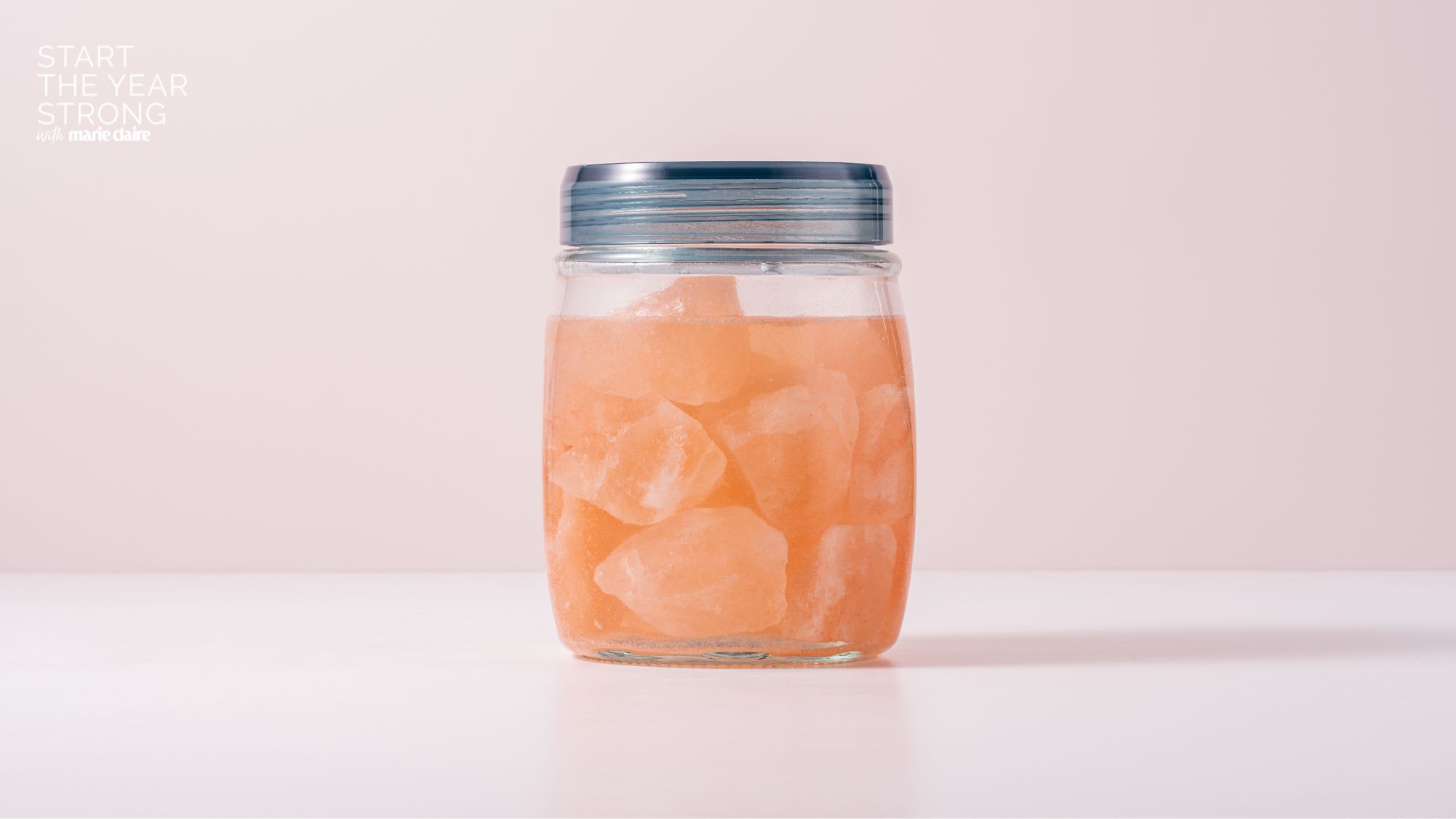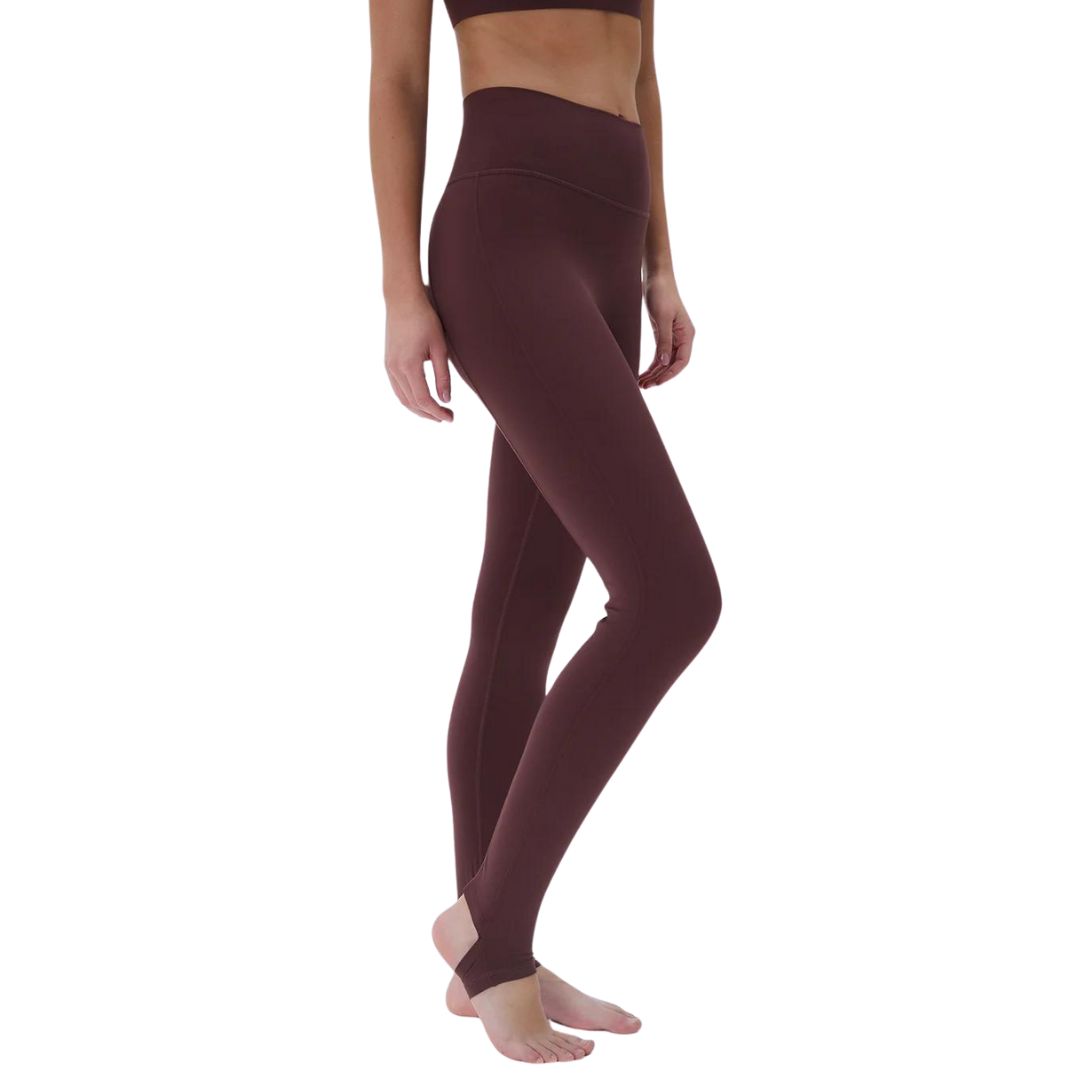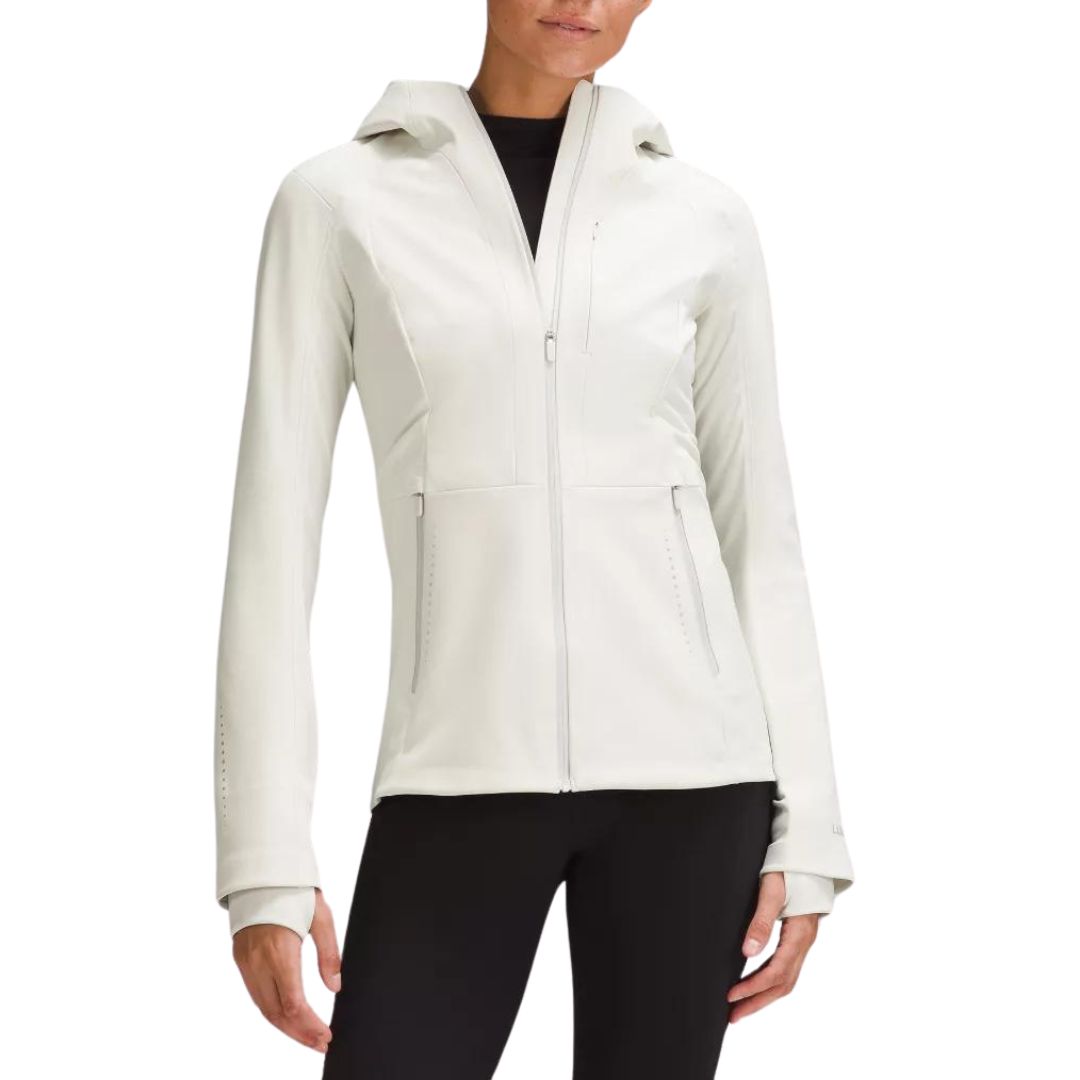Salt water is the latest viral TikTok must-try promising to boost hydration and more - so, does it work?
Is this the easy - and cheap - solution for keeping hydrated? Or do experts warn against it?


If you've ever been dehydrated (and haven't we all), you'll know that it can cause everything from headaches to muscle cramps after a workout. And while most of us train with a water bottle to hand, a few viral TikTok videos have brought attention to the fact that just drinking water perhaps might not be enough to properly hydrate yourself. Enter: the salt water trend.
Not seen it on your feeds yet? Certain TikTokers have been raving about the supposed health benefits of adding salt to your tap water to boost hydration and replenish minerals lost through sweat.
Acting as an electrolyte, the videos claim that sodium can help to pick up the water molecules and drive them into your cells. As one certified nutritionist called Claire shares in her video: "If you feel like you're thirsty after drinking water - or have to pee after 30 minutes - it can be a sign you're not absorbing your water." The answer, she shares, is adding a pinch of (in her video, specifically Celtic) sea salt to your water prior to drinking.
So, can sticking a pinch of common table salt in your water really help boost hydration and is there any science to back this up? Or is this just another crazy TikTok trend that qualified pros warn against? Below, we explain. Keen to read more about the wellness trends to watch for 2025? Don't miss our go-to nutrition tips, the benefits of mindful eating, our tried and tested Em The Nutritionist's recipes, plus the diet fads to avoid, while you're here.
Adding salt to your water is is being hailed as the new hydration hack - so, does it work?
What is the salt water trend?
First things first - a bit of background about what the salt water trend actually is for you. In short, it's a trend gaining traction on the social media app TikTok where health "experts" claim that adding a pinch of salt to your tap water can have some serious health benefits.
While salt water as a healing remedy isn't anything new - Hippocrates is reported to have encouraged his followers to immerse themselves in salt water to heal various ailments - is there any truth behind the claims that drinking it can actually boost health? First, let’s talk about the chemistry. You'll likely know that common table salt is called sodium chloride, with sodium and chloride being two of the key electrolytes our body needs (with others including magnesium, potassium and calcium). So, why are they so important? Well, our cells use these electrolytes to conduct electrical charges which, in turn, keeps our bodies running. As Healthline explains, they:
- Help regulate blood pressure
- Help your muscles contract
- Control your fluid balance
- Help your blood maintain its correct acidity.
In other words, they’re essential, especially when we're losing water and electrolytes in our sweat.
Celebrity news, beauty, fashion advice, and fascinating features, delivered straight to your inbox!
Know that you've heard the term electrolytes but not sure where? Electrolyte-boosted products are having a bit of a moment right now as interest in running peaks and athletes look for ways to optimise their workouts. A key ingredient in rehydration drinks and tablets - you might remember the sticky orange drinks we were given as kids after a sickness bug - electrolytes are key to maintaining fluid balance in your body and helping to support healthy nerve and muscle function, among other things.
While both rehydration drinks and tablets serve a similar purpose - to keep our hydration levels up and head off the symptoms of dehydration - the drinks often have added carbohydrates, too, making them a better fit for prolonged exercise (over 90 minutes) or working out in the heat.
But with the British Medical Journal publishing a warning about rehydration drinks and tablets (titled "The Truth About Sports Drinks" and claiming that companies are burying negative studies - "sports drinks are increasingly regarded as an essential adjunct for anyone doing exercise, but the evidence for this view is lacking") - you can see why people are turning to more affordable alternatives.
Enter: your common table salt, a hydration hack that TikTok claims we should all be using. So, could it be a viable alternative to forking out £30 to £40 for packets of beautifully branded electrolytes? We turned to the experts.
Are there any benefits of drinking salt water?
First things first - let's look at the benefits of adding salt to your water. As Liam Murphy, an instructor at Outdoor Military Fitness in Sussex who also served as a Royal Marine Commando shares, he uses salt in water for endurance events and harder workouts. For everyday workouts, though, he feels he gets enough salt from his food intake.
He can feel its benefits but adds that its use is nothing new - it's a hack that's been used for centuries by the military. He explains that while soldiers now get powder isotonic drinks or “screeches” in their packs, “I can call on the history books - back in the day when soldiers had a basic kit with no fancy drinks - and they did ok.”
He adds that there is, of course, the benefit of knowing exactly what’s in your salt, not to mention it being affordable, easy to use, and even more easy to get hold of.
Any risks?
So, what about the risks? Of course, it goes without saying that adding more than a pinch of salt could be harmful to your health - as per the NHS website, "It's easy to have too much salt or sodium - around three-quarters of the salt we eat comes from packaged and everyday foods we buy, such as bread, breakfast cereals, meat products and ready meals. Adults should have no more than 6g of salt a day (around one level teaspoon)."
And, as registered nutritionist Thalia Pellegrini says, while electrolytes can be a useful tool generally, she'd usually only recommend them to clients if they exercise or sweat a lot. Her take? "Staying hydrated by drinking water and eating a healthy, balanced diet should provide the body with the minerals it needs to function well,” she shares.
Plus, its chemical makeup is something that we also need to be wary of, argues Pelligrini. “Sodium and chloride are the two most abundant electrolytes in your body”, she explains, “but they’re not the only electrolytes and it’s important to get that balance right.”
While salt is definitely a “viable option," she emphasises that we need very little. “A pinch of salt in a litre of water would be sufficient for most people post-exercise”, she shares. And she stresses what we've mentioned above - too much salt in our body is damaging and, as the NHS lays out, can cause high blood pressure and increase your risk of heart attacks and strokes.
An expert's final verdict
Bottom line? Pellegrini says variety is the key. Yes - use salt water sometimes, but also use just plain water. As with most TikTok trends, there is a grain of truth to the claims, but it's also worth taking with a pinch of salt (see what we did there).
Alternatively, there are natural electrolyte-filled options like Pellegrini’s favourites – watermelon or coconut water. Or, you could also think about your daily salt intake via food.
Worried you might be consuming too much salt? Do be sure to check in with your doctor. Symptoms of too much salt include needing to go to the toilet a lot, headaches, bloating and thirst.
Shop MC UK approved health products:

Pilates fan or trying to practice the workout more this year? We can vouch for these Adanola leggings being a great investment. Not only are they an affordable price point, but their handy stirrup design will make gripping the Pilates mat or Reformer bar that bit easier.

Katie has been a journalist for more than twenty years. She is now freelance and writes for a beautiful spread of titles including Stylist, Breathe, Happiful and Wanderlust. She has tackled a wide array of subjects from work hacks to hormone health; and foraging to AI. No one day is the same but every day involves talking to people who are passionate about what they do and have a story to tell. She re-upholsters knackered furniture in her free time, which is rare because she also has four kids, two dogs, two cats, a snake and an axolotl.

